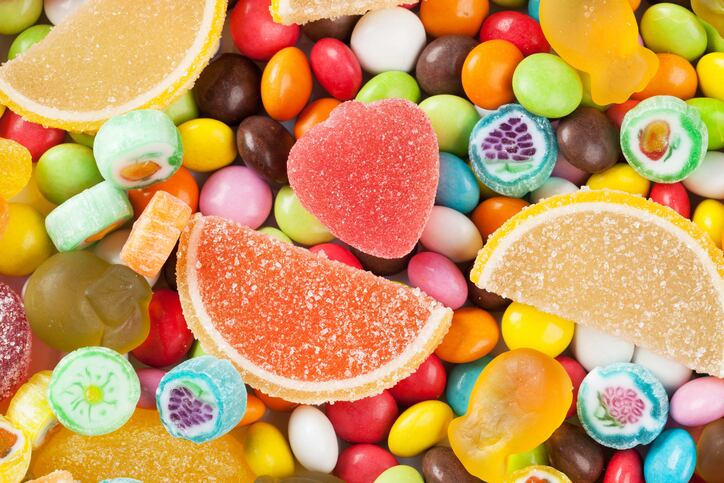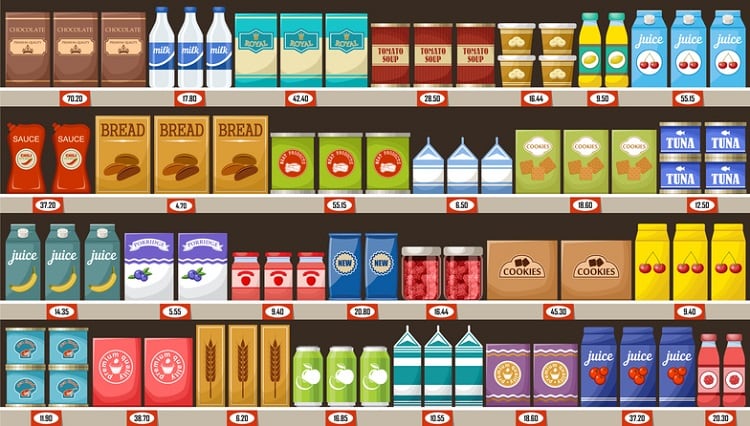A new report has found that social media is being actively used to market unhealthy food and drink products to teenagers in Norway.
‘Digital marketing of food and drink using influencers’, which was published by Norway’s Consumer Council yesterday (28 February) and is available here in Norwegian, concludes that children aged 12 years and over are not adequately protected against promotions online.
“The survey shows that teens are exposed to efficient and sophisticated marketing through role models, and role models that have a great influence,” said Consumer Council director Inger Lise Blyverket.
“With today’s regulations, it is obvious that children and young people do not have the protection that the minors are entitled to.”
Subtle and sophisticated advertising
According to the report, the most influential channels used to reach adolescents are found in social media – a fact that is recognised by both the manufacturers and advertising agencies.
“The food industry’s marketing of food and drink with a lot of fat, sugar and salt has been established over the last decade as a decisive factor for children and adolescents’ diet.
"It is well documented – strong evidence exists – that marketing of unhealthy products affects the attitudes of children and young peoples’ taste preference and contributes to increased consumption of these products, and thus to the development of obesity in children and adolescents,” said Blyverket.
“Our report shows that social media is actively used to promote unhealthy food…with strategies that are particularly effective on young people."
Content marketing and influencer-led campaigns, whereby marketing activities are oriented around individuals who have influence over the target market, are regarded as particularly effective in the social media sphere, as they are more difficult to distinguish from traditional advertising.
The survey looked at a number of social media used extensively by children and young people, such as YouTube and Facebook, including 16 Norwegian YouTube channels popular with Norwegian youth. Two thirds of the YouTube channels promoted unhealthy food in 2018.
“We have just seen the top of the iceberg. Here, there is a need for proper mapping, which also includes social media channels such as Snapchat and Instagram,” said Blyverket, who has challenged the government to carry out such a survey.
A call for stricter regulations
When in 2012 health authorities in Norway suggested banning the marketing of food products high in fat, salt and sugar that target children under the age of 18, the Consumer Council supported the initiative.
While a ban was not instated, authorities established the Food Industry’s Professional Committee (MFU), which primarily regulates the marketing of food products aimed at children 12 years of age and under.
The MFU is now being criticised by the Consumer Council for not adequately protecting children and adolescents over the age of 12.
According to the Consumer Council, the MFU’s scheme will be evaluated this year by health authorities. “We expect a review of advertising aimed at children and young people in social media before it is concluded whether the current scheme is good enough. Today’s regulations must be assessed against the position social media has in everyday life for children and young people,” said Blyverket.
Lagging behind the UK
According to the Consumer Council, Norway is lagging behind other countries such as the UK when it comes to marketing regulation.
In the UK, updated marketing legislation was adopted in 2017, when the Committee of Advertising Practice (CAP) banned adverts for food and drinks high in fat, salt, and sugar on non-broadcast media. This includes social media, print, posters and cinema.
Elsewhere on the bloc
- Spain has two different self-regulation schemes in place, where the marketing of unhealthy foods aimed at children under 15 on the internet is banned, while in other media the age limit is set at 12 years.
- Slovenia has introduced a law to regulate the placement of advertising during children’s programs. The regulation, which focuses on a product’s nutritional profile, has an age limit of 15 years.
- Latvia and Lithuania both have laws relating the marketing and sale of energy drinks to youth under 18 years of age.
- Ireland introduced voluntary marketing guidelines just last month. The age limit is 15 years.
However, according to government and campaigners alike, more can be done in the UK. In January, the UK’s Department of Health and Social Care launched a public consultation on the government’s plans to restrict promotions of food and drink products that are high in fat, sugar and salt.
And last month, UK campaign groups Action on Salt and Action on Sugar called for the ban of cartoons and bright packaging on unhealthy breakfast cereals that may appeal to children.
“…Cereal packaging is like having giant billboards on the breakfast table every morning – influencing consumption, awareness and future purchase,” Action on Sugar campaign lead Kawther Hashem told FoodNavigator recently.





